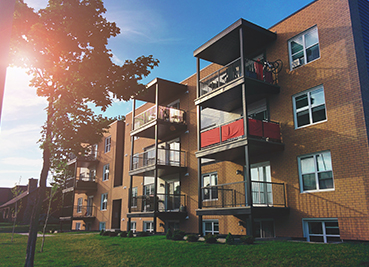
As seen in The Denver Post
Four years ago, voters passed a measure to limit the pace of residential growth in Colorado’s fifth-largest city.
On Tuesday, a new state law goes into effect that will snuff out what Lakewood residents decided at the ballot box in 2019, when a majority of voters approved a limit to the number of new housing units that can go up in the city in any given year.
House Bill 23-1255, signed into law by Gov. Jared Polis in early June, prohibits the implementation of “anti-growth” policies — which typically take the form of annual limits on the number of approved housing permits — in any Colorado community. While the goal of the new law is to chip away at the state’s ongoing affordable housing crunch, Lakewood Councilman Charley Able chafes at the state legislature effectively quashing a policy that voters in the city put in place through an election.
“It is outrageous overreach that wreaks havoc with the concept of ‘direct democracy,’” Able said.
Lakewood City Council will be taking up the issue of where to go from here during a special meeting Monday.
Fierce debates over who properly holds land-use and zoning powers erupted in the spring after lawmakers introduced a sweeping measure, Senate Bill 23-213, that would have given the state a major role in setting housing policy, like increasing density and weakening single-family zoning.
Following a full-scale opposition campaign from the Colorado Municipal League and others centered on the importance of buttressing local control, the bill went down to defeat in the waning days of the session. But HB23-1255, which was far more narrowly focused than the more comprehensive land-use bill, got much less attention and prevailed.
The measure not only outlaws future housing caps in Colorado, it renders growth control policies that already exist obsolete. Besides Lakewood, Golden and Boulder have growth limits. Cathy Kentner, who spearheaded the campaign for Lakewood’s Strategic Growth Initiative in 2019, said state lawmakers have “usurped” the will of voters in the city of 156,000.
“The legislature is overturning a vote of the people — and that is wrong,” she said.
Question 200 limited the construction of new homes and apartments each year to no more than 1% of the existing housing stock in Lakewood and requires City Council approval of large development proposals. The goal behind the initiative, Kentner said, was to ensure that the city’s established neighborhoods weren’t overwhelmed by tall multi-family projects and that residents retained a modicum of control over the character of their neighborhood.
State Rep. William Lindstedt, a Democrat representing Broomfield and a chief sponsor of HB23-1255, said Colorado’s housing challenges are matters of “statewide concern.” Limits on new housing, he argues, “are raising the cost of housing for everyone.”
He sees it in Broomfield, which has experienced pressure from neighboring Boulder, where there have long been efforts to control growth and reduce sprawl. The median price of a single-family home in Boulder sat at $1.5 million this spring, according to BizWest.
“It makes for regional problems,” Lindstedt said. “It’s unfair, it’s inequitable.”
Housing prices in Colorado have been on a tear for the last decade, with even beefier gains recorded during the coronavirus pandemic, according to a study from Point2Homes.com released last fall. From 2011 to 2021, metro Denver ranked 10th among 187 metro areas studied, with an average daily gain in home prices of $94 and a price increase from $231,400 to $607,100.
Escalating home prices have exacerbated the region’s homelessness issue, as fewer people can afford to get into a home. In July, the Metro Denver Homeless Initiative reported a 31.7% rise from 2022 to 2023 in the metro area’s homeless population — from 6,884 to more than 9,000.
One of the problems with housing caps, Lindstedt said, is that denials of housing permits aren’t based on particular criteria germane to a proposed project but are subject to a rigid and blind threshold. In other words, he said, applications aren’t denied “for cause.”
“If you’re going to develop housing, you deserve a right to a hearing,” the lawmaker said.
But Lindstedt and his colleagues at the Capitol recognized that changing housing policies in Lakewood, Golden and Boulder via state law shouldn’t be overly jarring. To that end, HB23-1255 provides a two-year “off-ramp” to the three cities to unravel their allocation systems.
That may be easier to do than it first appears. Brad Mueller, director of planning and development services for Boulder, said the city hasn’t seen its 1% growth limit exceeded in years because most new construction today is focused on affordable housing and mixed-use projects, both of which are exempt from the city’s housing cap.
“The market has been most interested in these two types of development,” he said.
Much the same is true in Golden. City leaders will meet in executive session Tuesday to receive legal advice on the matter.
“Golden does not typically hit the 1% residential unit growth cap in most years, and the city has averaged a roughly .8% growth rate over the past 20 years,” said Rick Muriby, who serves as community and economic development manager for the city.
The biggest impediment to residential growth in Golden, Muriby said, is the lack of available land.
“The community is almost entirely built out, so new development is typically redevelopment of existing lots and structures,” he said. “It can be difficult to find parcels for sale, and the assembly of parcels into larger lots for development is even more challenging in Golden.”
Even in Lakewood, the 1% growth limit has yet to be reached, according to the city. The council in recent years tweaked its allocation system to exempt affordable units and those built in blighted areas of the city. Mayor Adam Paul opposed the Strategic Growth Initiative four years ago, saying it would drive away developers and limit badly needed housing.
“Economics are economics — if you limit supply, it’s going to make everything else more expensive,” the mayor said. “I don’t think these policies age well.”
Paul surmises that many developers avoid Lakewood so they don’t have to deal with potential permit allocation restrictions.
“Good developers that have looked at Lakewood have gone to other areas,” he said.
That said, Lakewood officially opposed the bill when it was in front of lawmakers. Kentner doesn’t hide her disappointment over the legislature’s decision to override a “true grassroots initiative.”
She is running for mayor this November. Paul will be stepping down, as he is term-limited.
Kevin Bommer, who heads the Colorado Municipal League, said he is not aware of any contemplated legal action against HB23-1255 as part of an effort to determine whether state lawmakers went too far and eroded local control.
“The state has a role to play (on housing), but (that role) is not acting like the planning commission or city council,” he said.




